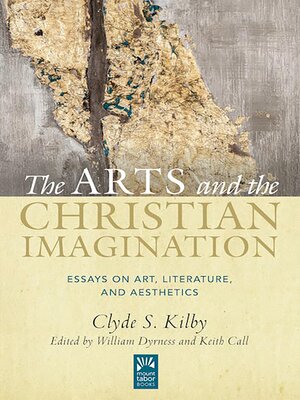The Arts and the Christian Imagination
ebook ∣ Essays on Art, Literature, and Aesthetics · Mount Tabor Books
By Clyde S. Kilby

Sign up to save your library
With an OverDrive account, you can save your favorite libraries for at-a-glance information about availability. Find out more about OverDrive accounts.
Find this title in Libby, the library reading app by OverDrive.



Search for a digital library with this title
Title found at these libraries:
| Library Name | Distance |
|---|---|
| Loading... |
Dr. Clyde Kilby was known to many as an early, long and effective champion of C. S. Lewis, and the founder of the Marion E. Wade Center at Wheaton College, IL, for the study of the works of Lewis, J.R.R. Tolkien and other members of the Inklings. Less known is that Dr. Kilby was also an apologist in his time for arts, aesthetics and beauty, particularly among Evangelicals. This collection offers a sampler of the work of Dr. Clyde Kilby on these themes. He writes reflections under four headings: "Christianity, Art, and Aesthetics"; "The Vocation of the Artist"; "Faith and the Role of the Imagination"; and "Poetry, Literature and the Imagination." With a unique voice, Kilby writes from a specific literary and philosophical context that relates art and aesthetics with beauty, and all that is embodied in the classics. His work is particularly relevant today as these topics are being embraced by Protestants, Evangelicals, and indeed people of faith from many different traditions. A deeply engaging book for readers who want to look more closely at themes of art, aesthetics, beauty and literature in the context of faith.







